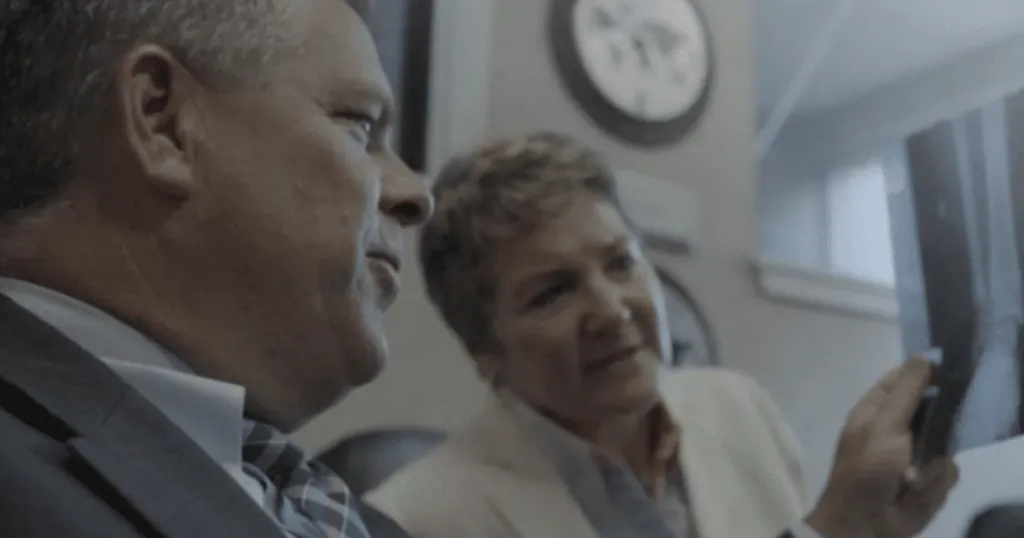Rhode Island Traumatic Brain Injury Lawyer
Traumatic brain injuries (TBIs) are particularly devastating because, in addition to causing permanent disabilities, they rob victims of their memories and individuality. The brain controls every physical and cognitive function. Consequently, brain injuries can cause every type of impairment.
- Updated date:
- November 22, 2024
Traumatic brain injuries can result from various incidents, including car accidents, falls, sports injuries, and workplace accidents. The consequences of TBI can be life-altering, ranging from cognitive impairments and physical disabilities to emotional and psychological struggles.
If you or a loved one has suffered a traumatic brain injury in Rhode Island, finding the right legal support is crucial. Brain injuries can have devastating effects, not only on the victims but also on their families. Navigating the complexities of legal claims while dealing with the aftermath of a brain injury can be overwhelming.
A seasoned brain injury lawyer understands the nuances of TBI cases and can advocate for fair compensation to cover medical expenses, rehabilitation, lost wages, and the pain and suffering endured by the victim. Marasco & Nesselbush Personal Injury Lawyers have extensive experience in handling brain injury cases and are dedicated to fighting for the rights and interests of their clients.
What Is A Traumatic Brain Injury?
A traumatic brain injury is brain damage subsequent to a head injury. Blows or jolts to the head cause the brain to hit the skull, resulting in closed brain injuries. Open brain injuries occur when objects such as bullets or skull fragments penetrate the brain tissue.
The most common type of traumatic brain injury is concussion, also called a mild TBI. Although classified as mild, concussions are potentially serious, especially if a second concussion occurs before the first one heals. Symptoms include the following:
- Brief loss of consciousness (does not always occur)
- A “dazed” feeling
- Confusion lasting 24 hours or less
Longer periods of confusion or unconsciousness indicate moderate or severe traumatic brain injuries and require immediate medical treatment.
Did You Or A Loved One Suffer TBI?
If you or someone close to you has experienced a traumatic brain injury, we understand the profound impact this can have on your life. TBI is not just a medical condition—it’s a life-altering event that brings about significant emotional, physical, and financial challenges.
Legal support is crucial if you or a loved one is dealing with a traumatic brain injury (TBI). Navigating the complex landscape of medical bills, insurance claims, and potential lawsuits can be overwhelming, but having a seasoned brain injury lawyer on your side makes all the difference. They understand the nuances of TBI cases and can advocate tirelessly for fair compensation. This means they’ll work to secure funds to cover your medical expenses, rehabilitation, lost wages, and the pain and suffering you’ve endured. With the right legal assistance, you can focus on healing while they handle the legal complexities. Marasco & Nesselbush are here to offer support, guidance, and the legal expertise you need during this difficult time.
How Common Is A Traumatic Brain Injury?
Traumatic brain injuries are a significant public health concern both nationally and within Rhode Island. Understanding the prevalence and demographic impact of TBIs can shed light on the importance of prevention, awareness, and effective legal support.
Across the United States, traumatic brain injuries are alarmingly common and have profound impacts on individuals and communities. Here are some key statistics:
- An estimated 2.8 million people sustain a TBI annually.
- This includes 50,000 deaths, 282,000 hospitalizations, and 2.5 million emergency department visits.
- TBI is a contributing factor to a third (30%) of all injury-related deaths in the United States.
- Every day, 153 people in the United States die from injuries that include TBI.
In Rhode Island, the occurrence of TBIs mirrors national trends but reflects specific local dynamics:
- Each year, Rhode Island sees approximately 2,200 TBI-related emergency department visits and 300 hospitalizations.
- TBIs are a significant cause of injury-related deaths in the state, with hundreds of fatalities annually.
- The state’s TBI data indicate higher risks among the youngest and oldest residents, often due to falls and accidents.
Recognizing the groups most at risk for TBIs and understanding the prevalence of these injuries can guide prevention efforts and inform the support provided to victims.
What Are The Most Common Causes Of Traumatic Brain Injury?
Falls
Fall injuries account for 48 percent of TBIs statewide. People older than 65 and under 17 suffer the highest number of traumatic brain injuries from falls.
Struck-By and Struck-Against Accidents
These accidents involve being struck by objects or running into stationary objects. They occur most often in motor vehicles, sports and the workplace.
Auto Accidents
Rhode Islanders experienced 308 serious injuries and 57 fatalities from automobile accidents in 2019. Traffic-related fatalities account for 14 percent of traumatic brain injuries statewide. Government and nonprofit organizations in the state, such as Rhode Island Bicycle Coalition, work to prevent brain injuries by offering pedestrians and cyclists educational programs about helmet safety and traffic laws.
Workplace Hazards
Workers in the construction industry face the highest risks for concussions and other traumatic brain injuries.
The majority of TBIs in construction result from the following:
- Falling from a height, such as a roof or a ladder
- Being struck by or striking against an object
- Being hit by a vehicle
Assault
Violence is the third leading cause of traumatic brain injury. Crime victims can receive compensation of up to $25,000 through the state Crime Victims’ Compensation Program. While this is a great start, it may fall short of covering ongoing medical bills.
If you or your loved one has suffered a brain injury due to violence, our experienced personal injury lawyers can help you identify all liable parties so you can receive adequate compensation.
Medical Malpractice
Medical malpractice causes nontraumatic brain injuries due to the deprivation of oxygen to the brain. These are known as hypoxic or anoxic brain injuries, and they can cause symptoms and effects that are as serious as traumatic brain injuries.
Anoxic brain injuries most often occur in cases of birth injury, anesthesia and surgical errors, misdiagnosis, and failure to diagnose.
Sports
A study of 2,651 athletes revealed concussion risks in most active sports, with the largest number of occurrences in football and lacrosse players. In sports with programs for boys and girls, girls experienced double the risk.
The Brain Injury Association of Rhode Island and the state of Rhode Island have worked extensively to prevent brain injuries through education and policy enactments.
The School and Youth Programs Concussions Act requires schools to apply the following measures:
- Provide parents with a concussion information sheet and require signatures.
- Educate coaches and school nurses annually using materials provided by the CDC.
- Immediately remove from sporting events any player with a suspected concussion.
- Prohibit the return of the player to the sport until a licensed physician approves it.
- A growing body of evidence points to a correlation between concussions in professional athletes and chronic traumatic encephalopathy (CTE) later in life. This condition causes memory deficits, confusion, poor decision-making, and dementia.
What Are Some Of The Signs And Symptoms Of A Traumatic Brain Injury?
Recognizing the signs and symptoms of a traumatic brain injury is crucial for timely medical intervention and recovery. TBIs can manifest in various ways, often categorized into physical, cognitive, and emotional indicators. These symptoms can appear immediately after the injury or may be delayed, emerging days or even weeks later.
Common Immediate And Delayed Symptoms Of TBI
Physical Symptoms
- Headache: A persistent or severe headache is a common symptom following a TBI.
- Dizziness and Balance Issues: Feeling lightheaded or experiencing problems with balance can indicate a TBI.
- Nausea and Vomiting: These are often early signs, especially in moderate to severe TBIs.
- Fatigue: Extreme tiredness or lethargy that doesn’t improve with rest.
- Blurred Vision or Sensitivity to Light: Vision disturbances and sensitivity to light are typical after a TBI.
- Loss of Consciousness: Even a brief loss of consciousness can be a significant indicator of a TBI.
- Seizures: Occurring immediately or days after the injury, seizures can signal severe brain injury.
Cognitive Symptoms
- Confusion and Disorientation: Feeling dazed, confused, or disoriented is a common cognitive sign of TBI.
- Memory Problems: Difficulty remembering events before or after the injury or experiencing gaps in memory.
- Difficulty Concentrating: Trouble focusing or maintaining attention on tasks.
- Slowed Thinking or Response Time: Slower than usual thought processes or responses to questions.
- Trouble with Problem-Solving: Challenges in reasoning or solving problems that were manageable before the injury.
Emotional Symptoms
- Mood Swings: Sudden and unexplained changes in mood or emotional states.
- Irritability or Agitation: Increased irritability or feeling easily agitated.
- Depression and Anxiety: Feelings of sadness, hopelessness, or heightened anxiety.
- Behavioral Changes: Noticeable changes in behavior, including acting out of character or increased aggression.
- Emotional Instability: Difficulty controlling emotions, resulting in frequent crying or laughing inappropriately.
When To Seek Help
If you or someone you know is experiencing any of these symptoms following a head injury, it’s essential to seek medical attention immediately. Early diagnosis and treatment can significantly impact recovery and reduce the risk of long-term complications.
How Do I Know If I Have A Lawsuit For A Traumatic Brain Injury?
Determining whether you have grounds for a traumatic brain injury lawsuit involves several factors. Generally, successful TBI claims hinge on proving negligence, causation, and damages. Understanding these criteria can help you evaluate your situation and decide on the best course of action.
Criteria For Filing A TBI Lawsuit
Negligence
To file a lawsuit, you must demonstrate that someone else’s negligence caused the TBI. This involves showing that the responsible party failed to act with reasonable care, leading to the injury. Examples of negligence can include:
- Car Accidents: Reckless or distracted driving by another motorist.
- Slip and Falls: Failure of a property owner to maintain safe conditions.
- Workplace Accidents: Lack of proper safety measures or equipment in a work environment.
- Medical Malpractice: Mistakes or lack of adequate care by healthcare professionals.
Causation
Causation requires proving a direct link between the negligent actions and the TBI. You must show that the injury would not have occurred if not for the defendant’s conduct. This often involves gathering:
- Medical Records: Documentation from healthcare providers detailing the injury and its cause.
- Expert Testimony: Insights from medical experts or accident reconstruction specialists.
- Witness Statements: Accounts from individuals who observed the incident or its aftermath.
Damages
Finally, you must demonstrate that the TBI has resulted in tangible damages. These can be economic or non-economic and typically include:
- Medical Expenses: Costs of treatment, hospitalization, rehabilitation, and ongoing care.
- Lost Wages: Income lost due to the inability to work following the injury.
- Pain and Suffering: Compensation for physical pain, emotional distress, and diminished quality of life.
- Future Damages: Estimated future medical costs and lost earning capacity if the TBI leads to long-term disability.
Consulting with a knowledgeable brain injury lawyer is essential to evaluate your case and guide you through the process of filing a lawsuit.
What Is The Benefit Of Filing A Lawsuit For A Traumatic Brain Injury?
Filing a lawsuit for a traumatic brain injury can provide significant benefits, particularly in terms of financial compensation and support for the recovery process. This legal action can help you or your loved one manage the substantial impacts of a TBI.
Potential Benefits Of Filing A TBI Lawsuit
Compensation for Medical Expenses
TBIs often require extensive and costly medical treatment. By filing a lawsuit, you can seek compensation for emergency and hospital care, rehabilitation, ongoing medical care, and financial support for acquiring necessary medical equipment or home modifications.
Reimbursement for Lost Wages
A TBI can significantly impact your ability to work, either temporarily or permanently. A successful lawsuit can secure compensation for the income lost from the time of the injury to the present and also consideration of diminished earning capacity if the injury affects your ability to work in the future.
Compensation for Pain and Suffering
Beyond economic damages, TBIs often lead to profound emotional and psychological suffering. Legal action can provide compensation for chronic pain or discomfort resulting from injury, emotional distress, and reduced ability to enjoy life or participate in previously loved activities.
Holding the Responsible Party Accountable
Filing a lawsuit not only helps you secure the compensation you deserve but also holds the negligent party accountable for their actions. This can promote better safety practices and potentially prevent future incidents.
Access to Legal and Medical Resources
Pursuing legal action often connects you with professionals who can support your recovery, including specialists who can provide testimony on the extent and impact of your injury and access to top-tier medical professionals and therapists through legal networks.
What Is The Time Limit To File A Brain Injury Lawsuit?
In Rhode Island, the statute of limitations for filing a brain injury lawsuit is generally three years from the date of the injury. This means you have a three-year window to initiate legal action. If you do not file your lawsuit within this period, you may lose your right to seek compensation.
Do I Really Need A Traumatic Brain Injury Attorney If I Suffered TBI?
Hiring an experienced traumatic brain injury (TBI) attorney is crucial if you’ve suffered a TBI. These cases are inherently complex, involving intricate medical evidence and significant financial stakes. A TBI attorney brings expertise in navigating the legal and medical intricacies unique to brain injuries. They can skillfully analyze medical records, consult with neuro-specialists, and build a compelling case to demonstrate the full extent of your injuries.
Moreover, they are adept at negotiating with insurance companies, who often seek to minimize payouts. With a dedicated TBI attorney, you have a strong advocate to secure the maximum compensation you deserve, covering medical expenses, rehabilitation, lost wages, and the profound impact on your quality of life. The Rhode Island traumatic brain injury lawyers at Marasco & Nesselbush are experienced in handling these nuanced cases and can provide the expert guidance you need.
Call The Personal Injury Attorneys At Marasco & Nesselbush For A Free Consultation!
The Rhode Island brain injury lawyers at Marasco & Nesselbush have extensive experience helping traumatic brain injury survivors get justice and receive the compensation they need. Insurance companies and opposing counsel may appear to act in your best interests. However, their goal is to reduce your compensation. They are skilled and present an unfair disadvantage to those who lack legal representation.
Our law office will represent your best interests. We never accept settlement offers before the lifetime medical costs are known, and our legal advice focuses on what is best for you. We consult forensic and medical experts as well as life care planners and work tirelessly to negotiate a fair settlement. If the opposing party refuses to offer a fair settlement, we are well-prepared to win you substantial compensation in court.
We represent clients throughout Rhode Island, with office locations in Providence, East Providence , Wakefield, Warwick, Woonsocket, and Quincy. We offer complimentary consultations and do not charge fees until we have won your case.
Contact us using our easy online form, or call us today at (401) 289-1027 to schedule a free case evaluation.
Our Case Results
Below are examples of the results we have been able to achieve for our deserving clients:
Recovered
$4.5 million
for a client who suffered a traumatic brain injury in a car accident
Recovered
$3 million
for a family whose infant died from brain injuries due to medical malpractice
Secured
$305,000
for a bicyclist who suffered a closed-head brain injury when a negligent driver ran him off the road
Recovered
$358,750
for a bicyclist who suffered a TBI after being struck by a negligent driver
Recovered
$275,000
for a victim of a nightclub assault and fall that caused a TBI
Recovered
$150,000
for a client who fell outside a bar and suffered a TBI after being recklessly served alcohol
DO I HAVE A CASE?
If you think you may have a case, contact us now for a FREE consultation
"(Required)" indicates required fields
Client Reviews

A Guide To Understanding A Traumatic Brain Injury
This resource guide was developed by Marasco & Nesselbush and the Brain Injury Association of Rhode Island (BIARI) to help survivors of traumatic brain injury (TBI), and their families understand and navigate the challenges they will face.
Important information is provided about the medical and neurological conditions facing TBI survivors. Guidance on overcoming insurance barriers and addressing legal ramifications is also included.


